Ms. Nguyen Thi Muoi said that her family's traditional pho restaurant was named Pho Suong not because there was anyone named Suong in the family, but the name was an affirmation that customers who ate pho at her restaurant would feel... happy.
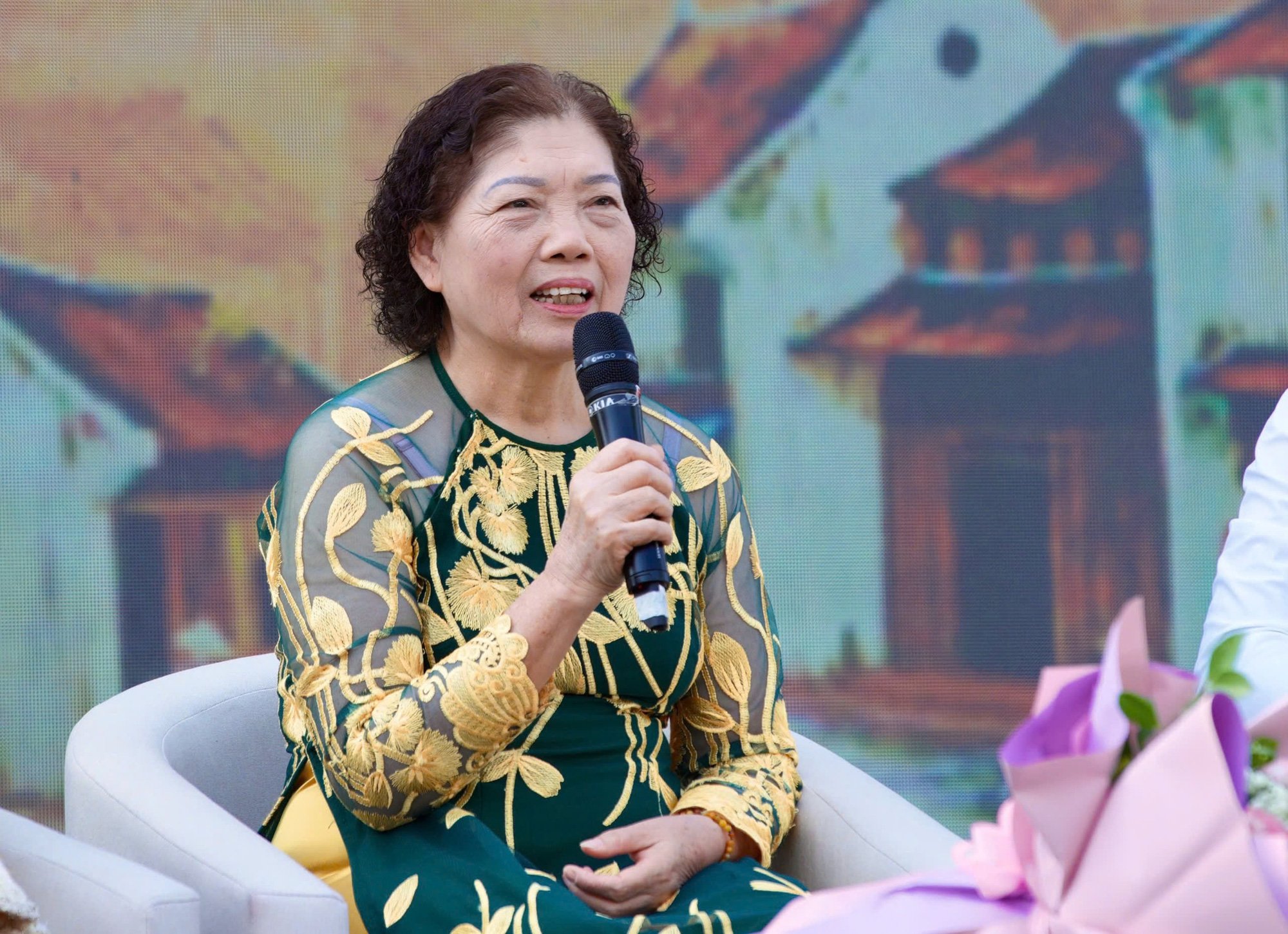
Artisan Nguyen Thi Muoi tells the history of her family's Pho Suong restaurant - Photo: BTC
Mrs. Muoi shared an interesting story about her family's pho tradition at the seminar on Preserving and promoting the value of Hanoi pho intangible cultural heritage held on December 1 at Thong Nhat Park, within the framework of the Hanoi Culinary Culture Festival.
From a street pho stall to the famous Pho Suong restaurant in Hanoi
Talking about the origin of her family's traditional pho business, artisan Nguyen Thi Muoi said her family started the business in the 1930s in Hanoi.
Her father, Nguyen Van Ty, started the family's pho business by selling pho on the streets of Hang Ngang, Hang Dao, Dong Xuan...
Early in the morning, Mr. Ty carries pho to sell to people for breakfast. He brings pho to customers and collects bowls and money in the late afternoon.
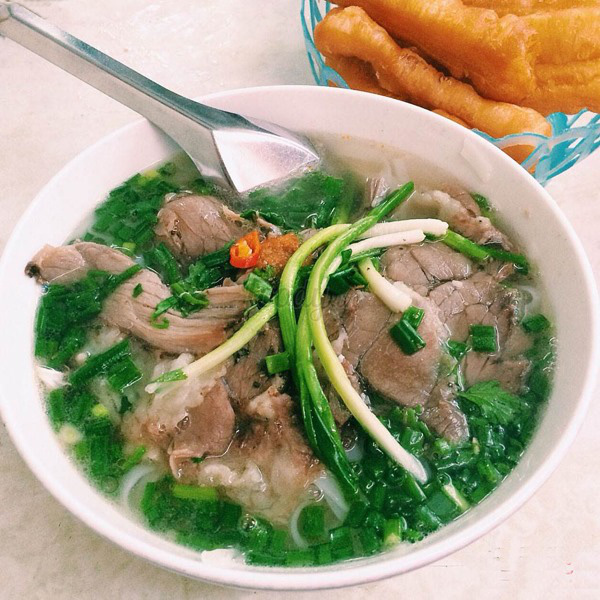
Pho Suong at 24B Trung Yen alley, Hanoi - Photo: T.DIEU
At that time, Hanoi was still very small, Mr. Ty only sold pho around a few streets. The neighbors all knew each other, and the customers who ate pho were usually only regulars.
Mrs. Muoi said that when selling pho, her father often wore a blue Chinese outfit, so people in the town often called him "the blue-shirted Chinese pho man". Mr. Ty diligently sold pho from then until 1956, when he stopped selling because at that time there was no longer any private economy.
In 1985, her mother gathered her children to continue her father's family business. Since then, Ms. Muoi's siblings have worked together to run the family pho restaurant for 40 years.
Recently, her siblings have separated to start their own business, with three locations in Trung Yen alley in the old quarter, on Nguyen Hong street, and Mai Hac De street, Hanoi.
Regarding the name Pho Suong, which is quite strange but familiar to Hanoians and tourists over the years, Ms. Muoi said that the name of the pho restaurant was not named after the owner as is the tradition of some pho restaurants in Hanoi.
There is no one named Suong in her family. The name of the Pho Suong restaurant was agreed upon by Mrs. Muoi's siblings with the meaning of the name affirming the quality of the pho: Suong Pho must be delicious and enjoyable to eat.
Regarding Hanoi's pho cooking profession being honored as a national intangible heritage, Ms. Muoi said she was very happy and proud, "I never thought that the profession that has supported my family for so many years would one day receive such attention and honor from the State."
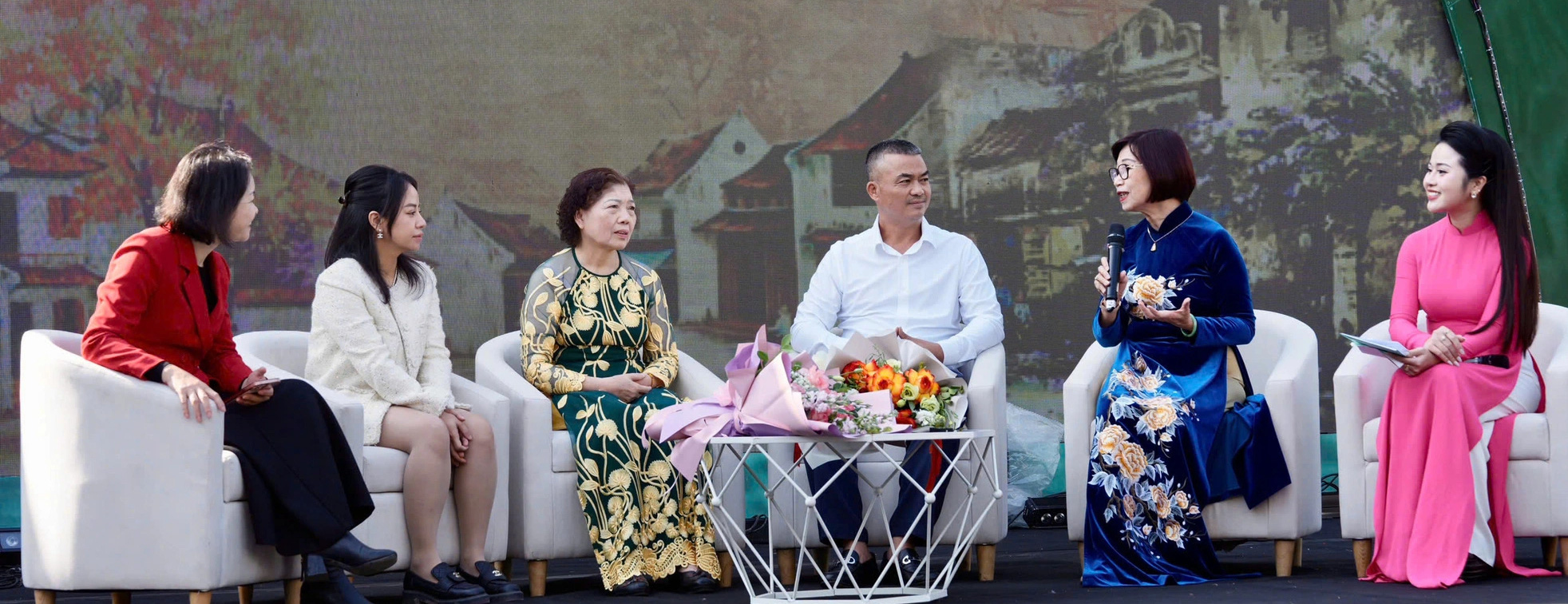
Managers, experts, and pho chefs also talk about pho - Photo: BTC
At the discussion, Mr. Nguyen The Hieu - owner of Pho Chi (specializing in chicken pho) on Yet Kieu street - also shared the story of his family's traditional chicken pho business since his grandfather's time, and now his children also sell pho, the fourth generation.
Ms. Nguyen Thi Van - owner of the Long Bich pho chain - tells a touching story about the birth of the Long Bich pho chain, born from the joy of her childhood when her father rewarded her with pho every time she got good grades.
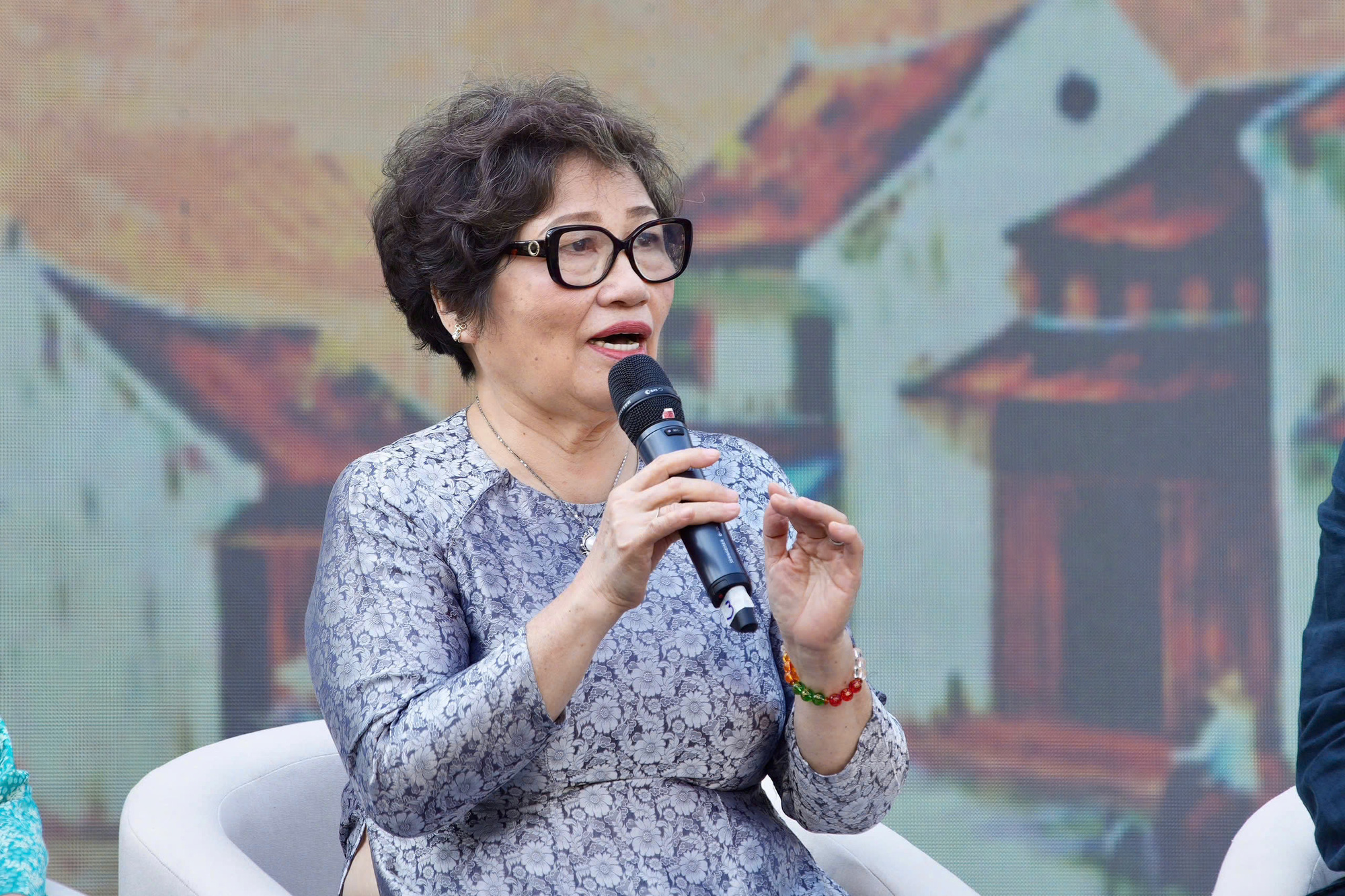
Meritorious Artist Pham Anh Tuyet shares interesting stories about pho - Photo: BTC
If introducing to international guests, pho is the first choice.
Regarding the appeal of pho, distinguished artist Pham Anh Tuyet said that when she cooked Vietnamese food for international politicians, the pho was always highly praised, with many saying they had never eaten such a delicious "soup".
"People are amazed by the perfect combination of ingredients and spices in pho. Abroad, people have no shortage of beef, but they don't know how to combine ingredients and spices to make pho like in Vietnam. The spices in pho are the pinnacle of Vietnamese spice combinations," said Ms. Anh Tuyet.

Artist Bui Thi Suong (right) said that if she were to introduce Vietnamese cuisine to foreigners, pho would be the first dish she would choose - Photo: Organizing Committee
Artist Bui Thi Suong affirmed that if she were to introduce Vietnamese cuisine in other countries, pho would be the first dish she would choose to bring.
Nowadays, Pho is becoming more and more popular in the world. Previously, restaurants around the world used English to call our Pho, but now they have replaced it with Vietnamese Pho on the menu.
Many times introducing pho to international guests, Ms. Suong realized that foreigners not only love the taste of pho but also enjoy hearing stories about pho in Vietnam.
Dr. Le Thi Minh Ly said that registering pho has many meanings. First, it is to show gratitude to our ancestors, and to show the world our unique cuisine and international integration.
It also helps develop the country's economy, as many Vietnamese people bring pho selling to the world. District 13, Paris, France has many pho restaurants.
Source: https://tuoitre.vn/pho-suong-an-vao-la-phai-thay-ngon-thay-suong-202412011952544.htm


![[Photo] Phuc Tho mulberry season – Sweet fruit from green agriculture](https://vstatic.vietnam.vn/vietnam/resource/IMAGE/2025/4/10/1710a51d63c84a5a92de1b9b4caaf3e5)
![[Photo] Prime Minister Pham Minh Chinh chairs meeting to discuss tax solutions for Vietnam's import and export goods](https://vstatic.vietnam.vn/vietnam/resource/IMAGE/2025/4/10/19b9ed81ca2940b79fb8a0b9ccef539a)
![[Photo] Summary of parade practice in preparation for the April 30th celebration](https://vstatic.vietnam.vn/vietnam/resource/IMAGE/2025/4/11/78cfee0f2cc045b387ff1a4362b5950f)



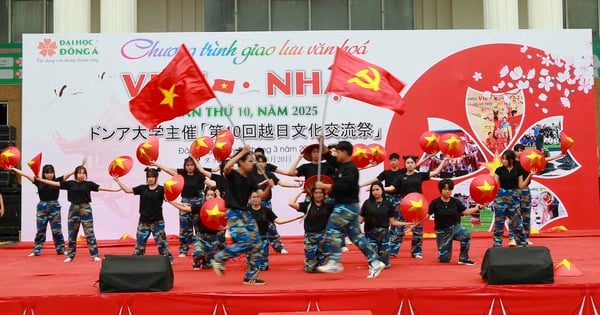

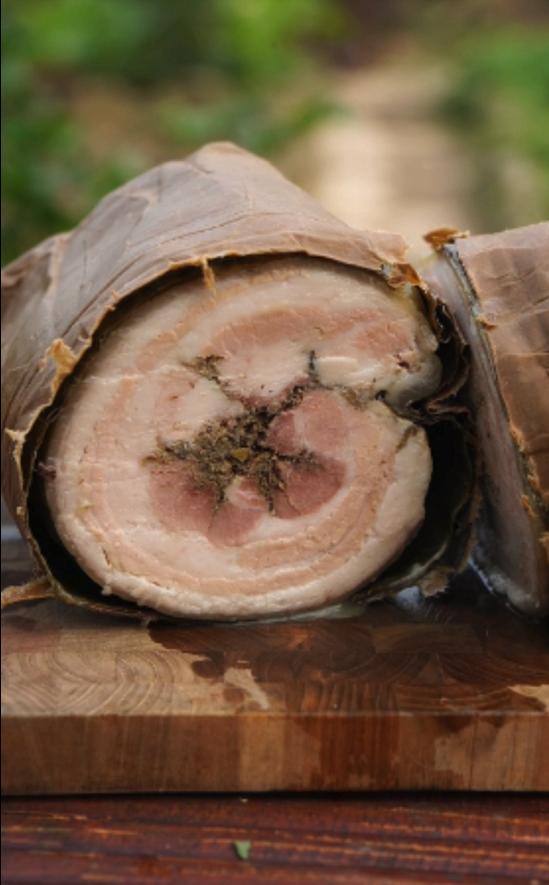

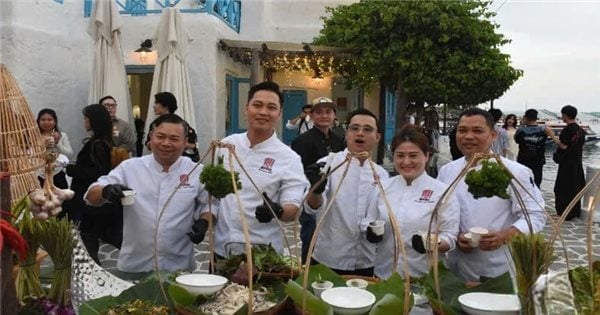

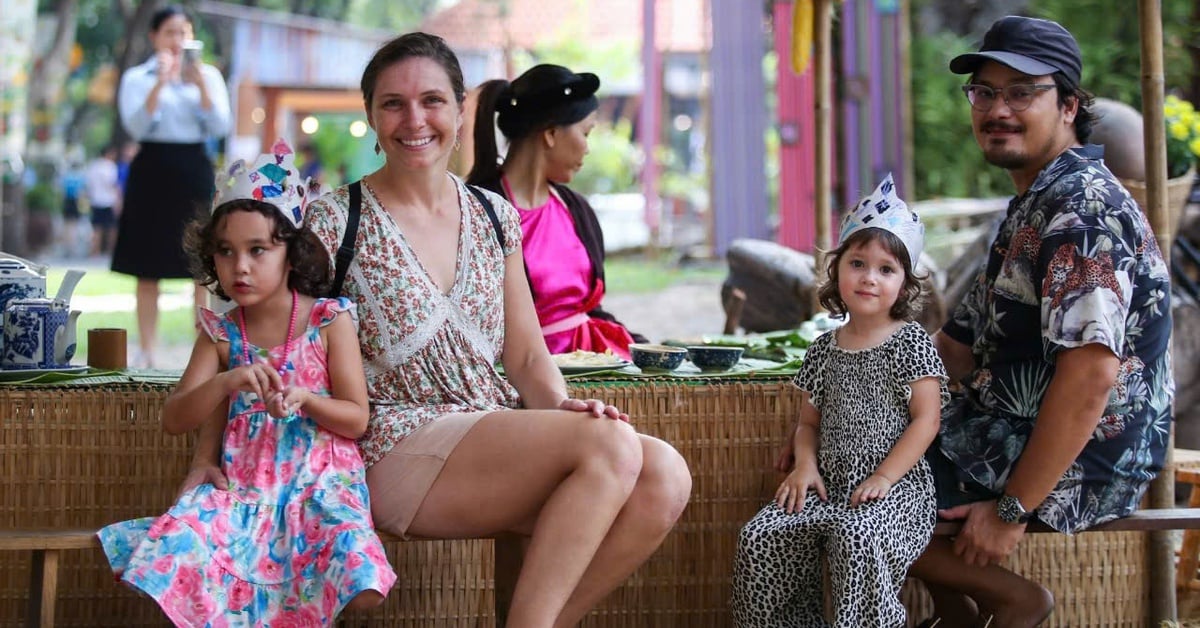
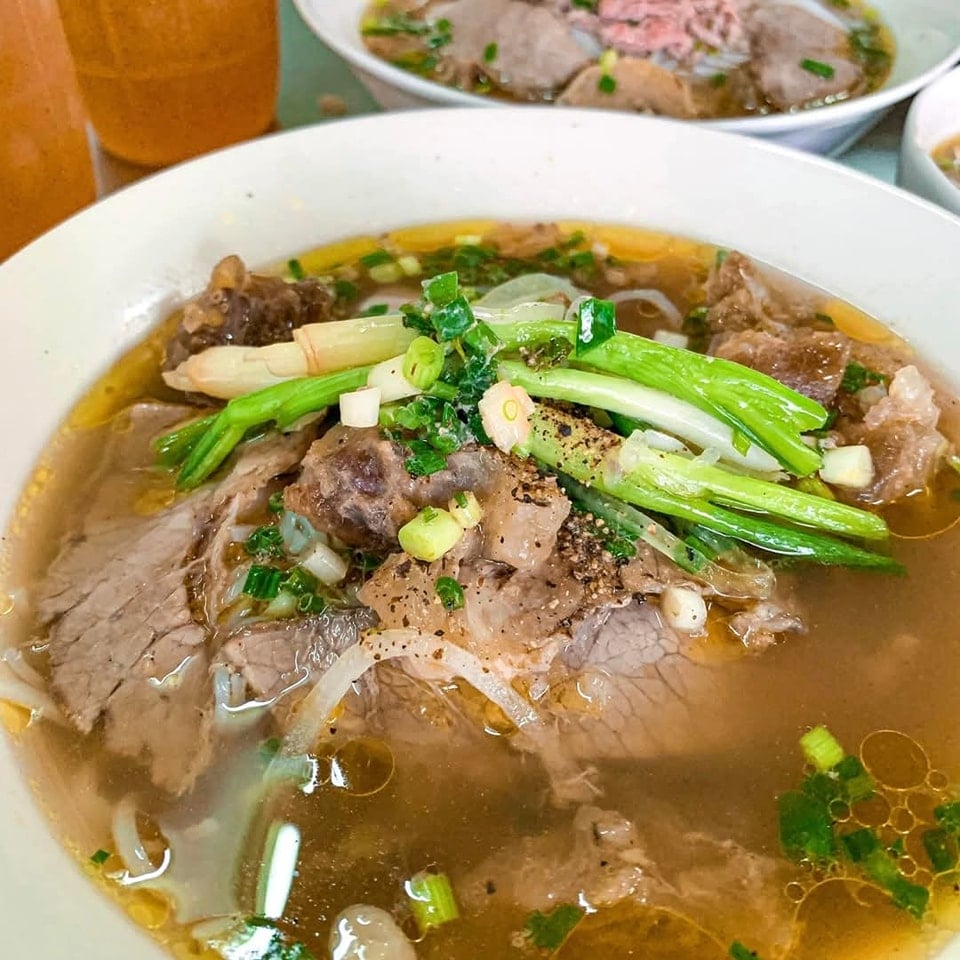

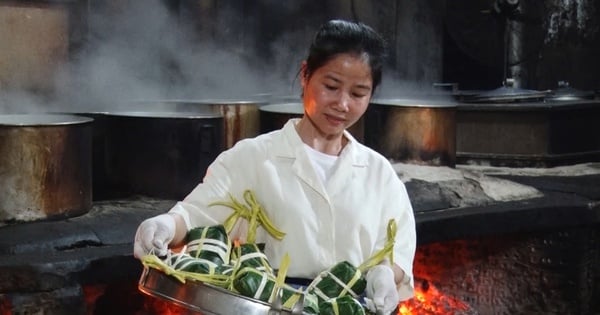

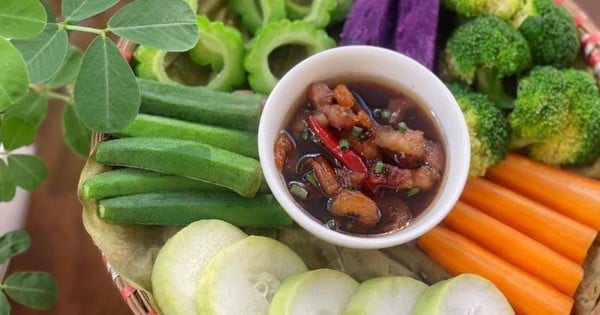
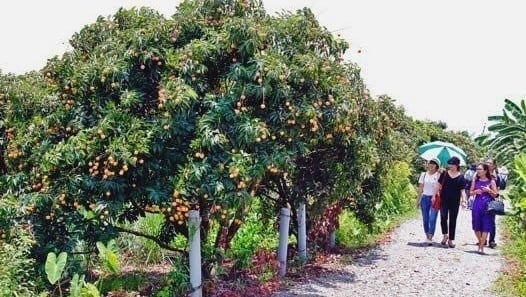
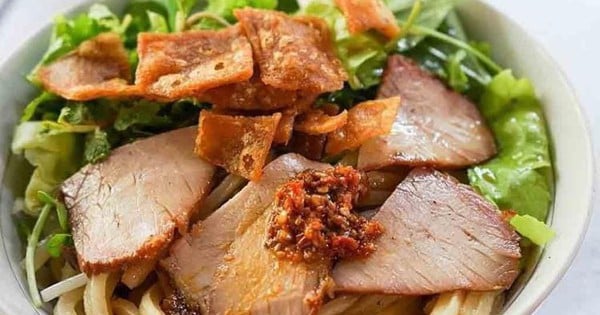
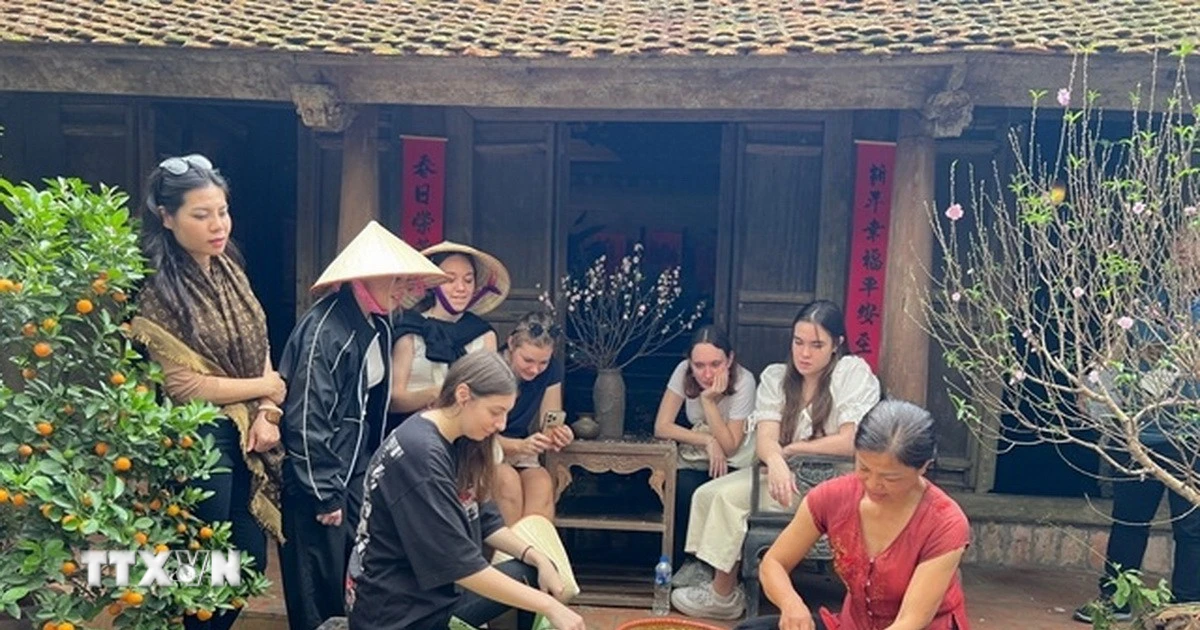
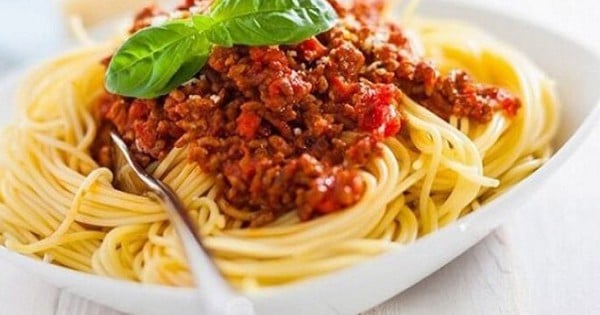
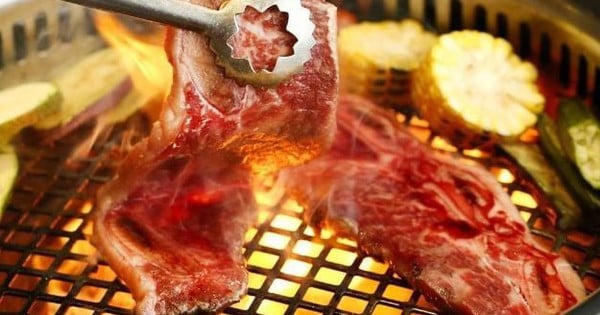




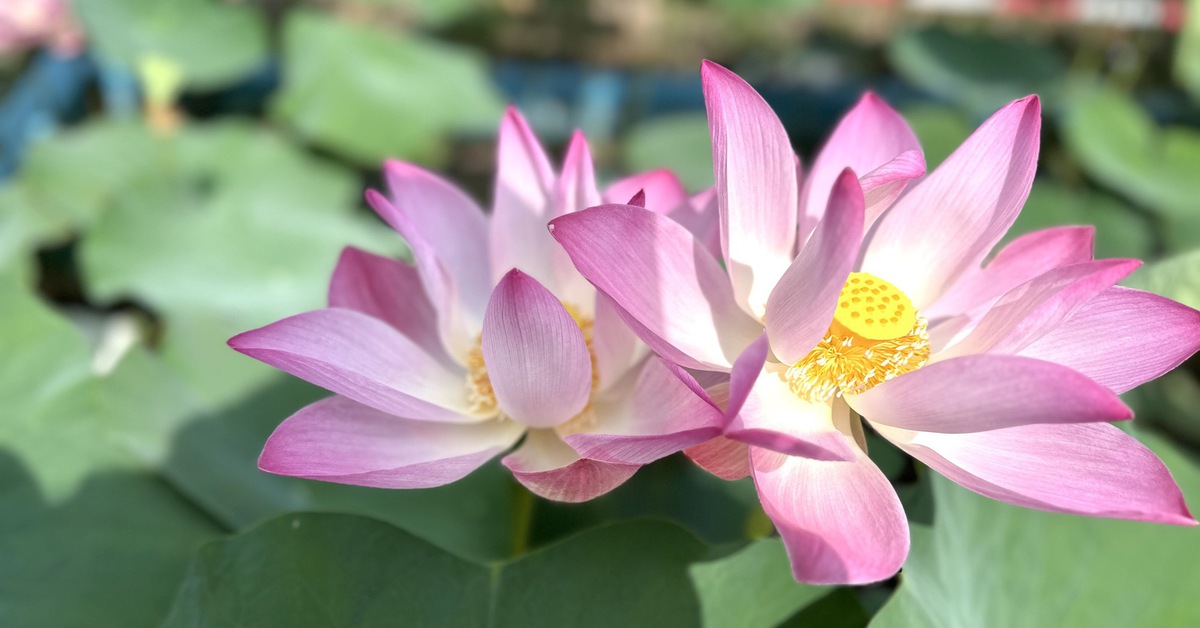

















































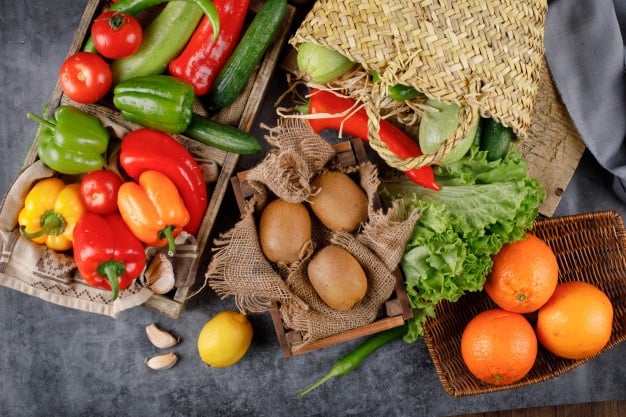


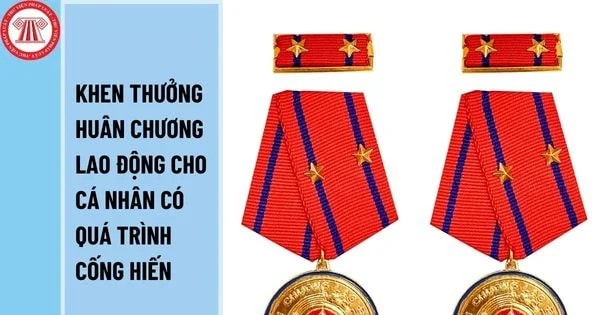

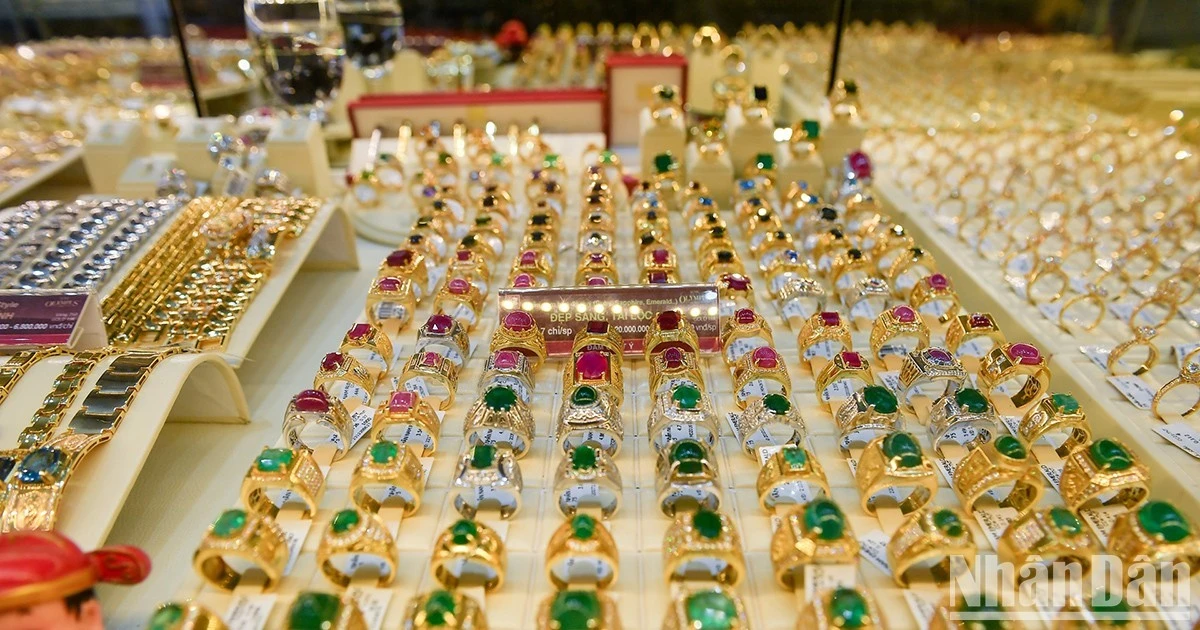















Comment (0)